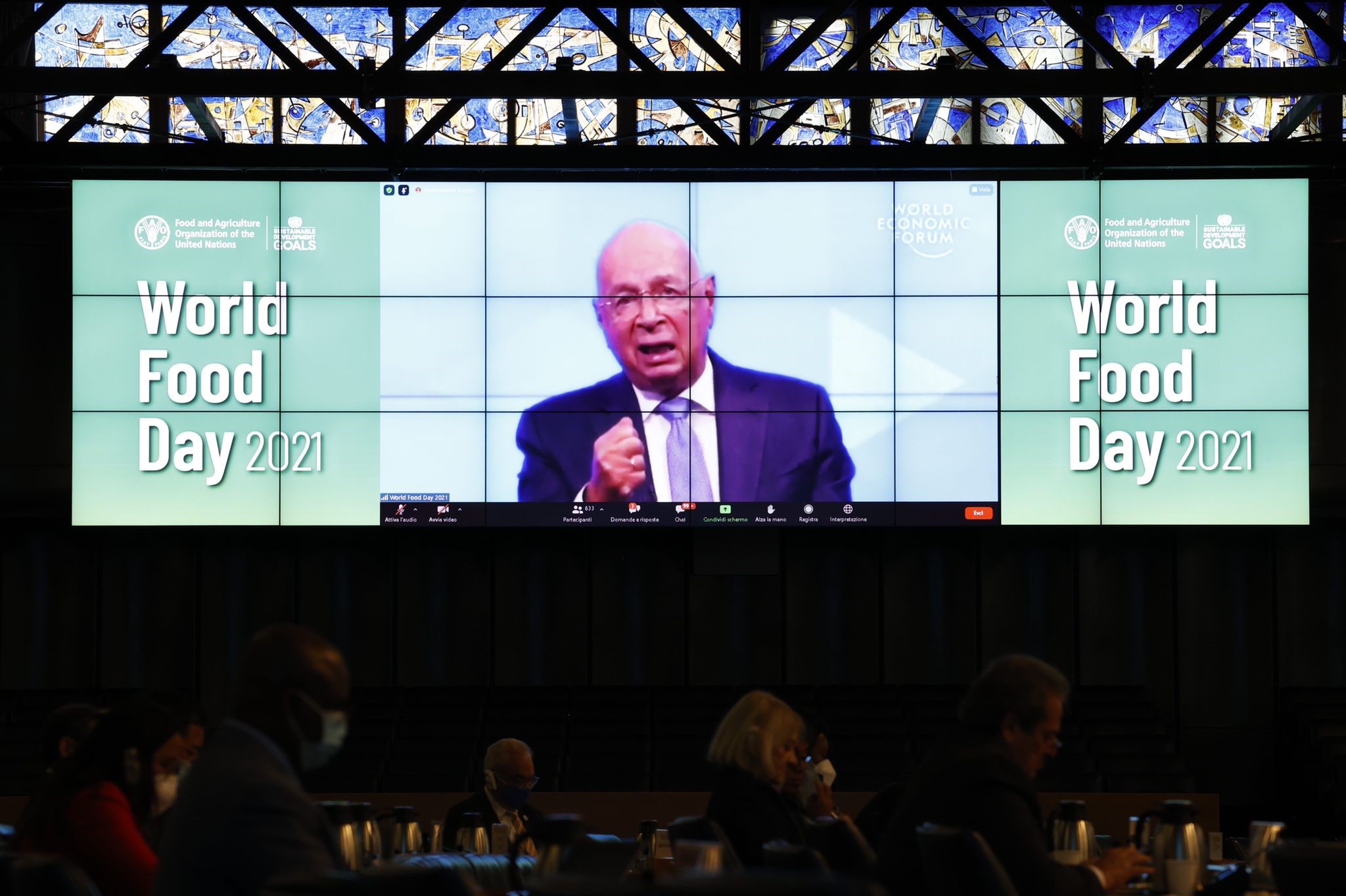Put people at the center of agri-food system innovation
World Economic Forum founder Karl Schwab delivers keynote address at FAO-hosted World Food Day celebrations

World Economic Forum Executive Chairman Karl Schwab.
©FAO/Giuseppe Carotenuto
Rome – “We must build greater trust that food systems work for people – not the other way around,” Karl Schwab, founder and executive chairman of the World Economic Forum (WEF), said today in a keynote address for World Food Day celebrations at the headquarters of the Food and Agriculture Organization of the United Nations (FAO).
Noting how food has re-emerged at the center of the global agenda in the past year, he voiced support for sweeping transformation of agri-food systems, emphasizing that “the principle must be to prioritize social solidarity and rural economic growth over simply improving supply chain efficiency.”
Schwab’s speech, “Food Systems Transformation: Building Sustainable, Healthier, And More Equitable Food Through Systems Thinking, Innovation and Stakeholder Cooperation”, is available here.
Founded in 1971, the WEF is an international organization focusing on public-private cooperation. It aims improve the state of the world by engaging business, political, academic and other leaders of society to shape global, regional and industry agendas. It is known for a yearly meeting in Davos, Switzerland, and invited FAO Director-General QU Dongyu to speak at the event earlier this year.
The slogan of this year’s World Food Day is “Our Actions are our Future”. Director-General Qu introduced the lecture, noting that FAO and WEF have been working together closely to provide leadership, game-changing initiatives and innovative solutions for the transformation of agri-food systems.
Schwab’s speech aimed to foster support for making sure agri-food systems, a major driver of the climate crisis, play a “huge part of the solution” as well.
The message
He emphasized the need for holistic systems-based thinking, the need to build multistakeholder “platforms for action”, and the importance of understanding the “true cost” of food, which includes hidden factors such as human health complications and biodiversity loss.
Everyone, at all levels, participates in agri-food systems daily, and all actors need to embrace their “stakeholder responsibility” and contribute to long-term societal goals, Schwab said. “A business cannot succeed in a society that fails,” he added.
The speech also called for more innovation in agricultural and food systems, which Schwab said have been slower to benefit than sectors such as health care from what he called the Fourth Industrial Revolution, characterized by the fusion of technologies in the physical, digital and biological spheres. Schwab pointed to geospatial technologies that could track and incentivize tens of millions of farmers to adopt “net-zero, nature-positive practices” and help create a whole new asset class in soil and regenerative farming.
It is vital, he emphasized, to build robust innovation ecosystems to support a people-centric approach to innovation. “When questions abound on the current world order and the risks facing national governments and international institutions, such as the World Economic Forum, it is our deep belief that the world needs examples of a new mobilization of global stewardship for our planet and the food system that we all rely on so heavily for our collective and shared prosperity,” he said.
Contact
FAO News and Media (+39) 06 570 53625 [email protected]
